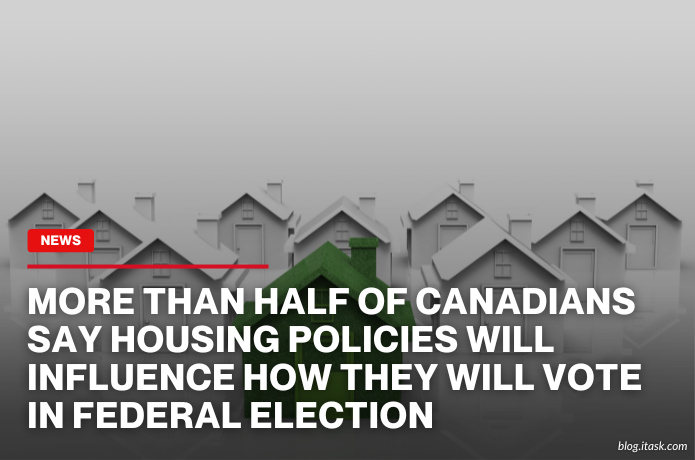More than half of Canadians say housing policies will influence how they will vote in federal election
More than half of Canadians say housing policies will influence how they will vote in federal election

A recent Ipsos poll reveals that more than half of Canadians say housing policies will influence how they vote in the upcoming federal election. With 95% acknowledging a housing crisis, and nearly half holding the federal government responsible, housing affordability has become a central concern for voters nationwide.
In response, both major political parties have proposed housing plans. Prime Minister Mark Carney's Liberals aim to build 4 million new homes by 2035 and maintain the housing accelerator fund to expedite municipal approvals. They also propose eliminating the Goods and Services Tax (GST) for first-time homebuyers purchasing properties under $1 million.
Conservative leader Pierre Poilievre has pledged to "unleash the biggest homebuilding boom ever," focusing on expanding skilled trades programs and apprenticeship incentives. He also plans to remove the GST on new homes under $1 million and proposes withholding federal infrastructure funds from cities that fail to increase housing construction by 15% annually.
Despite these proposals, public trust in parties' ability to address housing affordability varies. A Nanos Research poll indicates that 25% of Canadians trust the Conservatives most on housing affordability, 22% trust the New Democrats, and only 15% trust the Liberals.
The housing crisis particularly affects younger Canadians. A Royal LePage survey found that 69% of Ontario adults consider housing policies a top election issue, with higher percentages among Generation Z (72%) and millennials (75%).
As the April 28 election approaches, housing affordability remains a pivotal issue. Voters are closely examining party platforms to determine which offers the most effective solutions to Canada's housing challenges.
